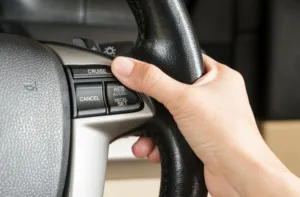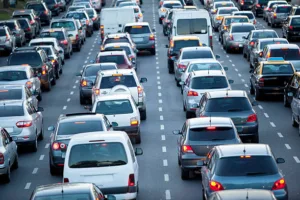In today’s world, where environmental consciousness and financial prudence go hand in hand, maximizing fuel efficiency has become a significant concern for many car owners. Whether you’re driving a fuel-guzzling SUV or a sleek hybrid, there are several strategies you can employ to stretch that tank of fuel a little further and reduce your carbon footprint in the process. Here are some practical tips to help you increase the fuel efficiency of your car
Tips to improve Fuel Efficiency of Car
Regular Maintenance
One of the most crucial factors affecting fuel efficiency is the condition of your vehicle. Regular maintenance, including routine oil changes, air filter replacements and tire rotations can significantly improve fuel economy. A well-maintained engine operates more efficiently, consuming less fuel for the same amount of work.

Proper Tire Pressure
Under inflated tires create more rolling resistance, which means your engine has to work harder to propel the vehicle forward. This increased workload leads to higher fuel consumption. Make it a habit to check your tire pressure regularly and inflate them to the recommended level specified in your owner’s manual or on the sticker inside the driver’s side door jamb.

Lighten the Load
Carrying unnecessary weight in your vehicle can decrease fuel efficiency. Remove any items from your trunk or roof rack that you don’t need for your trip. Every extra pound adds strain to your engine and reduces fuel economy.

Drive Smoothly
Aggressive driving habits, such as rapid acceleration, hard braking and speeding can significantly impact fuel efficiency. Practice smooth and gradual acceleration, maintain a steady speed and anticipate stops to avoid unnecessary braking. Driving at a moderate speed also helps improve fuel economy, as most vehicles achieve their best efficiency between 80 and 120 kilometers per hour.

Use Cruise Control
Utilizing cruise control on highways can help maintain a constant speed and prevent unnecessary fuel consumption due to speed fluctuations. However, use cruise control wisely, as it may not be suitable for hilly terrain or heavy traffic conditions.

Avoid Excessive Idling
Idling wastes fuel, so if you anticipate being parked for more than a minute, turn off your engine. Restarting your car uses less fuel than idling for extended periods.

Plan Your Trips
Combine multiple errands into one trip to minimize mileage and maximize efficiency. Efficient route planning can also help you avoid traffic congestion and idling, further improving fuel economy.

Use Air Conditioning Wisely
Air conditioning can increase fuel consumption, especially at higher speeds. To reduce its impact on fuel efficiency, use your AC sparingly and consider using the vehicle’s ventilation system or opening windows when driving at lower speeds.

Choose the Right Fuel
Use the octane rating recommended by your vehicle manufacturer. Using premium fuel in a car that doesn’t require it provides no additional benefits and is a waste of money.

Consider Aerodynamics
Roof racks, bike carriers and other exterior accessories can increase aerodynamic drag, reducing fuel efficiency especially at higher speeds. Remove them when not in use to improve airflow around your vehicle.

By incorporating these tips into your driving habits and vehicle maintenance routine, you can increase the fuel efficiency of your car and save money at the pump while reducing your environmental impact. Remember that small changes add up over time, so even implementing a few of these strategies can make a noticeable difference in your fuel economy.
For more related content click here.

